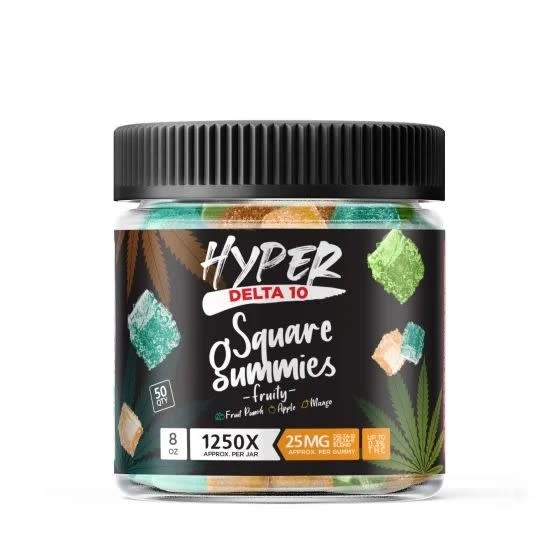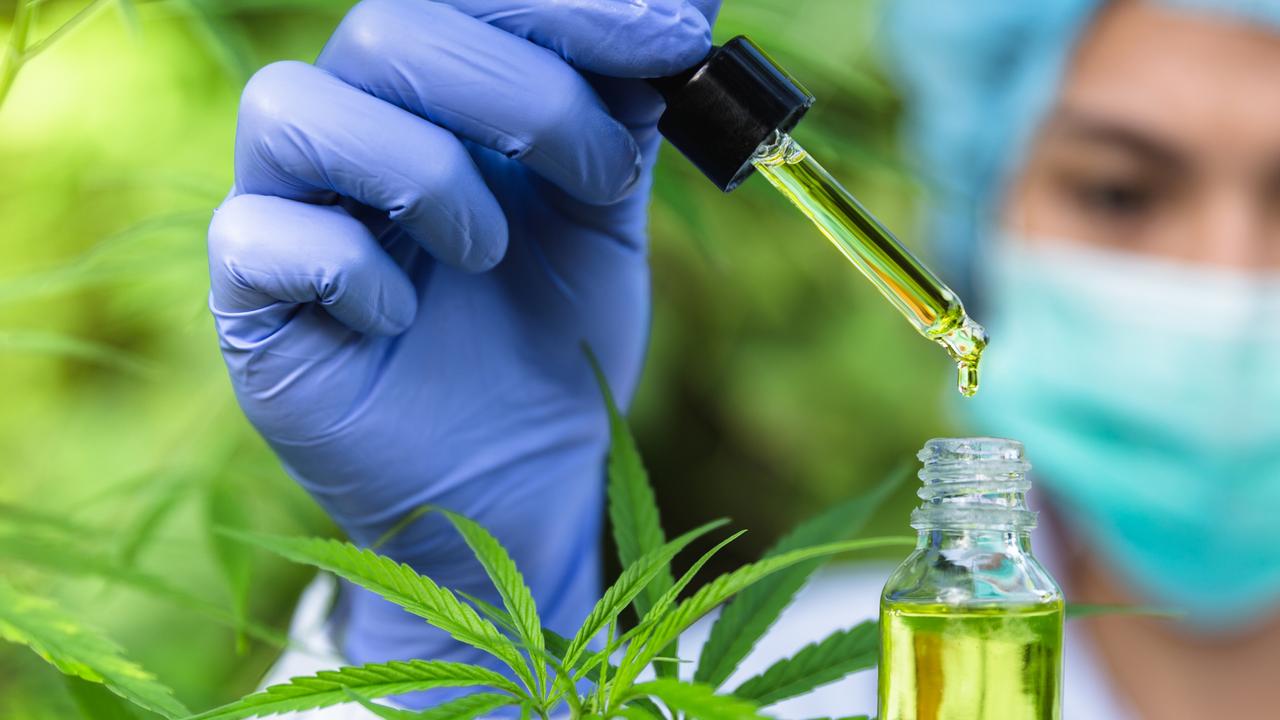What are the side effects of delta 10?

If you are using delta 10 products, it is normal to wonder whether it has side effects. This blog discusses the side effects of Delta 10 THC products, the reasons Delta 10 has side effects, and how to avoid them.
The cannabis world is fast-growing, and more consumers are turning to this plant’s products for recreational and therapeutic purposes. More compounds are being discovered, with Delta-10 THC being the new addition to the cannabis industry. This compound is similar to Delta 8 THC. However, it gives its users a psychoactive buzz with a different form of high. Its effects are more uplifting compared to the soothing effect of Delta 8. Since Delta 10 THC products are becoming more popular, consumers have various concerns. First-time users are worried about the side effects this THC isomer gives. This article covers all you need to know about the effects of delta 10 THC.
Possible Side Effects of Delta 10 THC
Dry Eyes
According to Ware et al. (2010), THC compounds give users dry eyes, and Delta-10 compounds are not excluded. Dry eyes depend on how the cannabinoid attaches itself to the cannabinoid receptors in the eyes, affecting the moisture levels. This is the reason most people have red eyes after consuming THC. Their eye capillaries become dilated because of dried eyes
Low Blood Pressure
Machado et al. (2011) commented that consuming THC can temporarily lower your blood pressure. Low blood pressure can lead to dizziness, fast heart rate, and lightheadedness. Also, under rare circumstances, it can make one faint. If you do not eat before taking Delta-10 THC, you are more likely to have low blood pressure.
Dry Mouth
Since THC attaches itself to cannabinoid receptors of the salivary glands, consumers can get a dry mouth after using THC products. Grotenhermen et al. (2016) suggested that THC reduces saliva production in salivary glands, leading to a dry mouth.
Headaches
Iversen (2001) noted that if consumers heavily dosed on Delta-10 THC, they may experience headaches. This is because this compound affects the part of the brain that causes headaches.
Increased Anxiety
Niesink et al. (2013) noted that although Delta-10 THC products do not make users anxious like Delta 9 THC products, they can cause anxiety, especially when consumed in higher doses.
Inability to Drive
It is not advisable to drive while you have consumed Delta-10 THC. This is because it may affect your mental ability, interfering with your ability to drive.
Impaired Concentration and Coordination
The intoxicating results of Delta-10 THC are milder than Delta-8, which is more psychoactive. Evans (2019) noted that when consumed in higher doses, the former leads to poor coordination and concentration.
It Could Interfere With Other Medications
It is not advisable to consume Delta-10 products when you are under medication. This is because this compound can subdue the levels of the enzyme CYP3A4. This enzyme metabolizes most prescribed medications. Kaewmeesri (2013) concluded that when this enzyme is suppressed, it can cause an accumulation of the medication, leading to adverse side effects.
Sleepiness
According to Cluny et al. (2015), a high dose of Delta-10 THC can make you sleepy since it is sedative. It may interfere with your daily tasks and job.
Why Delta 10 THC Has Side Effects
Since delta 10 is extracted from hemp, it is non-toxic. The endocannabinoid system (ECS) prevents these hemp-derived compounds from becoming toxic. Due to this, most people can consume high doses of Delta-10 THC without being concerned.
Although delta-10 THC is non-toxic, it can lead to adverse side effects. These effects differ among different users. This means that some people do not experience these side effects.
The possibility of experiencing side effects depends on how you dose the THC and your body’s tolerance. Other factors include your body weight and general health. The good thing about Delta 10 THC’s side effects is that they are temporary.
How to Avoid Delta 10 Side Effects
The side effects of delta 10 normally occur when this compound is consumed in high doses. The best method to avoid its side effects is to take in lower amounts. Most people underestimate how strong Delta-10 THC is. If you are a beginner, start with lower doses and increase the amount as you get used to it. If you are using Delta-10 vapes, start with 1-3 hits, wait for around thirty minutes and see how your body reacts. If you are taking edibles, you can start by consuming half of a 10 mg gummy and wait for around one to two hours to see how you feel.
Choosing a stronger consumption method such as vapes is recommended for rapid effectiveness. This method allows the THC to be flushed out from your system faster. Delta 10 edibles and capsules have lasting effects; hence you can use them after getting used to Delta-10 THC.
Conclusion
Since Delta 10 is new to the market, it is expected to have a huge effect on the hemp industry with time. However, you should be aware of the side effects this compound can cause. If you take the right amount of Delta-10 THC according to how it is prescribed, it is rare for you to experience adverse side effects. Also, purchase your Delta 10 THC products from a reliable and reputable vendor to avoid low-quality products. Before consuming any delta 10 product, consult your doctor for guidance on the right dosage and the possible interaction of this compound with other medications.
References
Cluny, N. L., Keenan, C. M., Reimer, R. A., Le Foll, B., & Sharkey, K. A. (2015). Prevention Of Diet-Induced Obesity Effects On Body Weight And Gut Microbiota In Mice Treated Chronically With Δ9-Tetrahydrocannabinol. Plos One, 10(12), E0144270.
Evans, D. G. (2019). Marijuana Legalization Will Cause Many Problems For Missouri Law Enforcement And Schools. Missouri Medicine, 116(3), 164.
Grotenhermen, F., & Müller-Vahl, K. (2016). Medicinal Uses Of Marijuana And Cannabinoids. Critical Reviews In Plant Sciences, 35(5-6), 378-405.
Iversen, L. L. (2001). The Science Of Marijuana. Oxford University Press.
Kaewmeesri, P. (2013). Effect Of Phyllanthus Amarus Schum. & Thonn. Extract On The Pharmacokinetics Of Midazolam In Rabbits (Doctoral Dissertation, Prince Of Songkla University).
Machado Bergamaschi, M., Helena Costa Queiroz, R., Waldo Zuardi, A., & Crippa, A. S. (2011). Safety And Side Effects Of Cannabidiol, A Cannabis Sativa Constituent. Current Drug Safety, 6(4), 237-249.
Ware, M. A., Wang, T., Shapiro, S., Robinson, A., Ducruet, T., Huynh, T., … & Collet, J. P. (2010). Smoked Cannabis For Chronic Neuropathic Pain: A Randomized Controlled Trial. Cmaj, 182(14), E694-E701.
Niesink, R. J., & van Laar, M. W. (2013). Does cannabidiol protect against adverse psychological effects of THC?. Frontiers in psychiatry, 4, 130.
- Terravibe, LLC CBD review - October 21, 2022
- Sabaidee CBD review - October 21, 2022
- John’s cbd review 2022 - October 21, 2022


